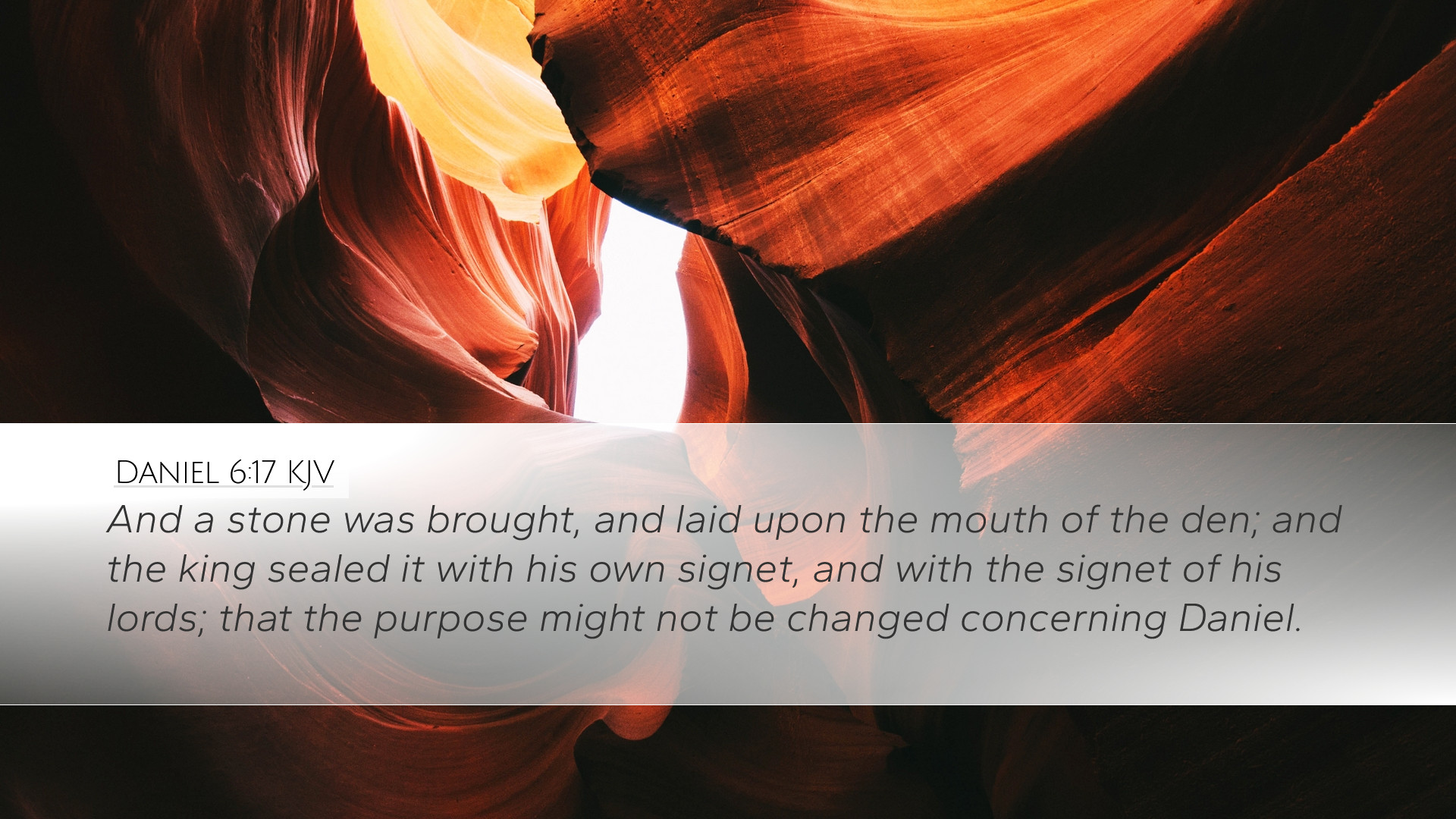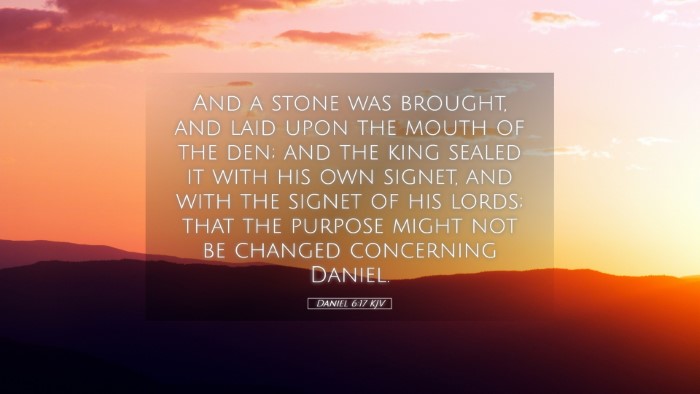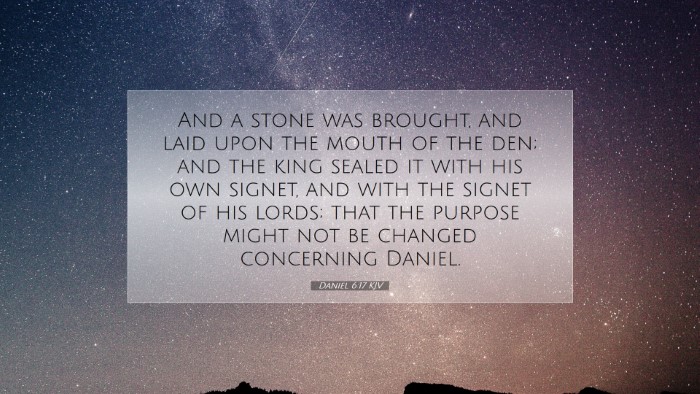Commentary on Daniel 6:17
Daniel 6:17 states, "And a stone was brought and laid upon the mouth of the den of lions; and the king sealed it with his own signet, and with the signet of his lords; that the purpose might not be changed concerning Daniel." This verse captures a pivotal moment in a narrative that emphasizes faithfulness, divine deliverance, and the significance of a steadfast commitment to God.
Context and Overview
The context of Daniel 6 is crucial for understanding this verse. Daniel, a faithful servant of God, finds himself in a perilous situation due to the jealousy of other officials. They conspired against him and manipulated King Darius into establishing a decree that anyone who prayed to any god or man other than the king should be thrown into the lions' den.
Despite knowing the consequences, Daniel continues his practice of praying three times a day towards Jerusalem. The king, realizing he was manipulated into this decree, is distressed when he learns of Daniel’s punishment. However, the king's dilemma reflects his impotence against the law he enacted, which serves as a backdrop for the impending miracle.
Exegesis and Theological Insights
The act of sealing the den with a stone is laden with theological symbolism. It signifies both finality and an attempt to thwart the divine plan. Various commentaries offer profound insights into this act:
- Matthew Henry: Henry emphasizes the notion of the king’s seal reflecting human authority attempting to supersede divine will. He notes that the stone not only prescribes an end but also symbolizes how God’s purposes cannot ultimately be impeded by human decisions.
- Adam Clarke: Clarke draws attention to the desperation involved in sealing the den; he suggests that it points to the king’s acknowledgment of Daniel's integrity and the gravity of the decision he was forced to endorse. It also shows how human attempts to control outcomes fail in the face of divine intervention.
- Albert Barnes: Barnes highlights the king's authority symbolized by his signet, indicating that even the highest forms of authority cannot change God’s predetermined plans. This is particularly relevant as it serves to foreshadow the miraculous deliverance that is to follow, showcasing God’s sovereignty.
Symbolism of the Stone and Seal
The stone and the seal serve practical and symbolic purposes in this narrative:
- Finality of the Punishment: The stone represents the finality of the king's decree. Once sealed, it highlights how Daniel's fate seems sealed according to human standards.
- Impediment to Divine Intervention: The sealing is a futile attempt to prevent God from intervening. This act serves as a reminder that no earthly authority can hinder God's will, echoing spiritual truths found throughout scriptures.
- Foreshadowing of Christ’s Resurrection: The imagery of the stone being rolled in front of the lions’ den can also be seen as foreshadowing the stone laid at Christ’s tomb. Just as God delivered Daniel from death, He would also raise Jesus from the dead.
Practical Applications
This verse and its surrounding context present several practical applications for theologians, pastors, and believers:
- Faithfulness under Pressure: Daniel's unwavering commitment to prayer in the face of persecution serves as a model for Christians today who are often challenged for their beliefs in secular environments.
- Trusting God’s Sovereignty: The sealing of the den reminds believers that no matter how desperate a situation seems, God’s sovereignty is unassailable. Faith should remain steadfast, trusting that God's plans are ultimately for good.
- Embracing the Unseen: While the den appears closed and hopeless, the unseen divine activities assure believers that God is still at work, evoking a call to live in faith rather than fear.
Conclusion
In summary, Daniel 6:17 is not merely a statement about the measures taken against Daniel; it encapsulates a profound theological lesson on human authority, divine sovereignty, and the hope of deliverance. The commentaries of Matthew Henry, Albert Barnes, and Adam Clarke enrich our understanding and invite deeper reflection on God’s unwavering commitment to His people.
As pastors, students, and theologians engage with this text, they are reminded of the power of prayer, the importance of unwavering faith, and the assurance that God's purposes will always prevail, regardless of the might of human attempts to seal our fates.


